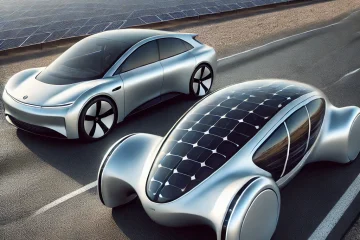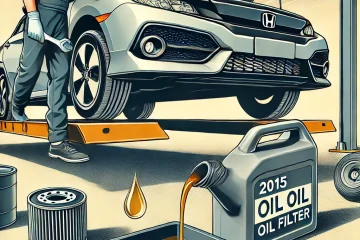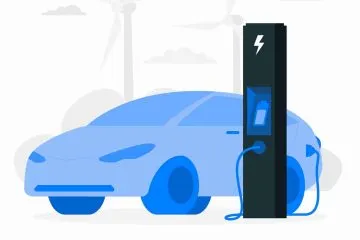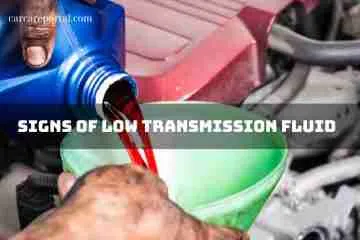Can You Use Regular Gas in A Flex Fuel Vehicle?

Can You Use Regular Gas in A Flex Fuel Vehicle?
New engine designs that help optimize fuel consumption and offer more efficient running are a priority in the automotive industry. Flexible fuel vehicles are one of the more recent developments.
The numerous benefits and operations of this type of engine are well known amongst car lovers but may be difficult to understand for a layman.
In this article, we will help you understand everything that you need to know about flexible fuel engines, including their advantages, and one of the most common questions asked – can you use regular gas in a flex-fuel vehicle?
What is A Flex-Fuel Vehicle?
Utilizing an alternate design for their combustion engine, flexible fuel vehicles can operate on more than one type of fuel. This technology was first developed in the early 1990s and mass-produced in 1994 by Ford. However, its popularity has been growing exponentially over the past few years, and for a good reason.
Flexible fuels are alternative fuels made of a combination of gasoline and ethanol or gasoline and methanol. As the automotive industry struggles to deal with rising prices and shortages in gasoline, technologies that offer affordable alternatives are a welcome reprieve.
The biggest plus point with these systems is their similarity to the common gasoline vehicle. Aside from a few changes to their fuel system and engine, there is virtually no difference between flexible-fuel vehicles and ones with only gasoline engines.
Other modern technologies like hybrid or battery powdered cars require a complete system overhaul, which is difficult for many people to adjust to. A minor change in fuel type appeals to people’s sensibilities.
Flex fuels are commonly used in Brazil, where a 20 to 26 percent blend of ethanol and gasoline is used in vehicles. Across the United States, an 85 percent methanol-gasoline blend, commonly referred to as E85, is used as a flexible fuel.
Can You Use Regular Gas in A Flex-Fuel Vehicle?
Flex-fuel vehicles offer you versatility in the kind of fuel you can use. The internal combustion engine is capable of operating on gasoline alone as well as different combinations of fuels.
When it is not economically viable to source flexible fuels, regular gas can also be used in these vehicles, causing no damage to their engines.
Flex-fuel engines offer the great advantage of burning whatever proportions and combination of fuels that are supplied to them. This means you can have varying compositions of fuels for your vehicle or even continue using traditional gasoline.
Engines have microprocessors that detect the amount, combinations, and ratio of fuels and adjust fuel injection accordingly. This makes them incredibly user-friendly, not to mention convenient!
Why Switch to A Flex-Fuel Vehicle?
Flex-fuel vehicles have a variety of benefits to offer over gasoline-only engines—these range from environmental benefits to tax saving and overall improved engine performance.
1. More Environmentally Friendly
Using flexible fuel vehicles offers a variety of benefits to the environment compared to regular fuel vehicles. Gasoline pumps more toxic fumes into the environment compared to ethanol which is a cleaner fuel to burn.
Contributing fewer greenhouse gases compared to its counterpart gasoline, flex-fuel is a more environmentally safe option. In a world with increasing climate change and endless sources of damage to our ecosystems, flex fuels are a step in the right direction.
2. Sustainable Fuels
Flex-fuel vehicles run on ethanol which is a sustainably produced fuel. Created from ingredients such as sugar and corn, ethanol-based fuels are much more environmentally friendly and leave behind a much lighter carbon footprint.
Additionally, this offers a much better alternative to purchasing fuels from oil-rich countries.
3. Tax Reductions
In an effort to promote a shift to environmental responsibility, governments across the world offer concessions to their citizens. Flexible fuel vehicle owners are offered various tax concessions and tax credits which can significantly reduce and even eliminate their tax obligations.
4. Heightened Performance
Some believe that alternate fuel sources can be detrimental to your engine’s health. However, in reality, the effect is quite the opposite.
There is no effect on the engine’s performance when E85 fuel is used in a flex-fuel car. In fact, in some cases, increased horsepower and torque are generated, resulting in much more efficient performance.
5. Improved Technologies
Modern flex-fuel vehicles have a variety of technological advancements which help make the engines much more efficient and boost performance.
Electronic sensors are used to detect fuel blends that further adjust engine performance accordingly. Additionally, your vehicle’s engine can determine the best fuel composition that offers the most mileage and efficient usage.
What Vehicles Run on Flexible Fuels?
The increased tax concessions offered on purchasing and operating flex-fuel vehicles have helped increase their demand in the market. Large motor companies such as Chevrolet and Ford have a variety of E85 compatible models.
Here are some of the models that offer this feature:
- Chevrolet Impala
- Chevrolet Tahoe
- Chevrolet Explorer
- Ford Transit
- Ford Explorer
To identify whether your GM or Ford car has a flexible fuel feature, you can check for badging that reads “Flex Fuel Ethanol” or has a leaf/road emblem on it.
A more widespread flex-fuel is E10, for which many different models of cars are compatible. You can identify whether your car is suitable for flexible fuels by checking for a yellow fuel cap or a nozzle ring on your car, which manufacturers use to indicate this feature.
Other flex-fuel models include labels on fuel doors.
Final Note
The contention surrounding flex-fuel vehicles is an ongoing one.
However, the trend seems to be leaning towards ethanol as an environmentally safe alternate fuel. The increase in ethanol production plants is a byproduct of the increased acceptance and demand towards flexible fuel vehicles worldwide.
Switching to a flex-fuel vehicle is a move worth making. The multiple benefits include cost efficiency, engine efficiency, and a reduced negative impact on the environment. Flex-fuel cars are miles ahead of vehicles using regular fuels.
If you cannot access different types of fuels, don’t worry! Flex-fuel vehicles are fully operational on regular fuels and offer equally good if not better performance.













No Comment